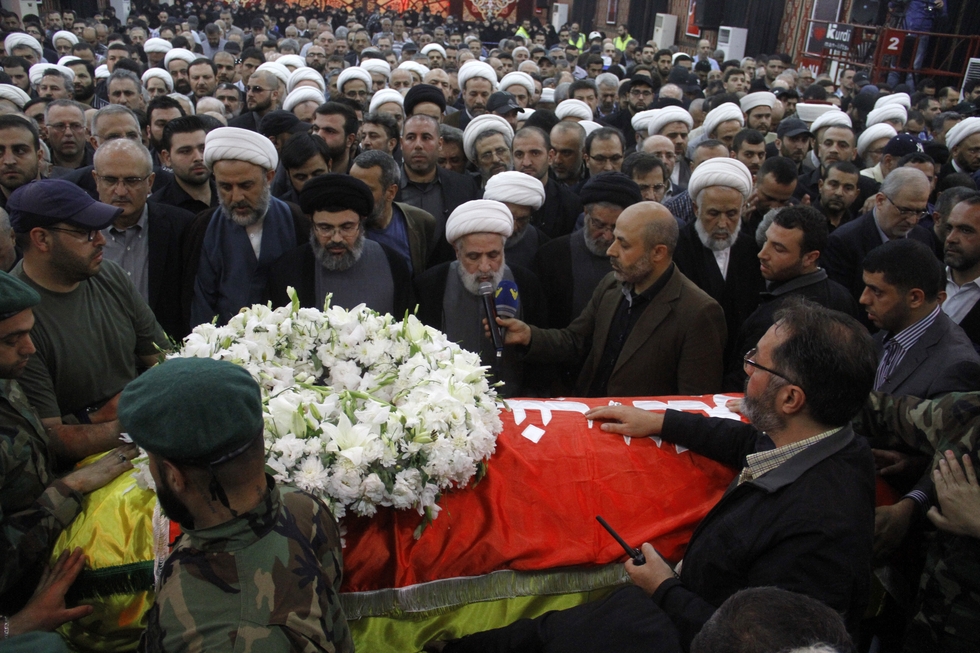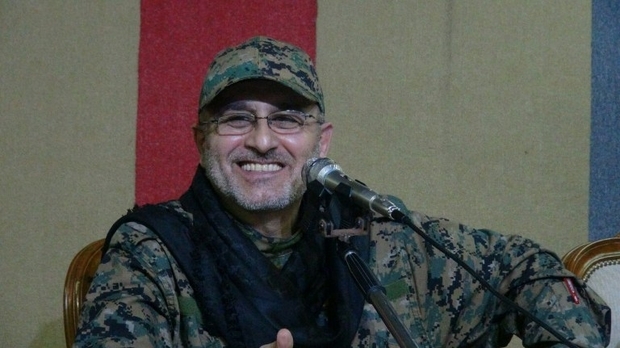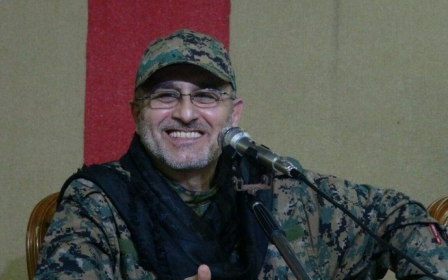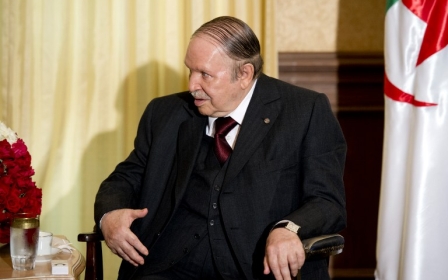Funeral for Hezbollah commander draws thousands in Beirut

Thousands attended the funeral of slain Hezbollah commander Mustafa Amine Badreddine in the Lebanese capital on Friday, after the veteran military leader was killed in Syria this week.
Mourners carried Badreddine's coffin, adorned with the yellow flag of the Lebanese Shia movement, through the suburbs of southern Beirut, with many calling for revenge.
Hezbollah announced earlier on Friday that Badreddine died in an Israeli strike near the Damascus airport, Al Jazeera reported. Hezbollah's official al-Manar website simply said he had been "martyred," without providing details about who carried out the attack.
Second-in-command Sheikh Naim Qassem told mourners at the funeral Badreddine was killed in a "huge blast" at a Hezbollah position near Damascus airport.
He said a probe was under way, but "because there are many possibilities, we don't want to anticipate the investigation".
"I assure you, however, that within hours, no later than Saturday morning, we will give a detailed account about what caused the blast and who was behind it," Qassem said.
Hezbollah has a "clear indication" on who was responsible and how it happened, "but we need some more time to be 100 percent sure," he said.
Baghdad-based US military spokesman Colonel Steve Warren said it was unclear who carried out the strike but the United States was not involved.
The Israeli government has so far refused to comment on Badreddine's death.
Badreddine led Hezbollah's intervention in support of Syrian President Bashar al-Assad's government, and his death came with a fragile truce in Syria's five-year war on the brink of collapse.
A six-day-old ceasefire in second city Aleppo expired early on Thursday, and rebel snipers killed two civilians in the city's government-held sector, a monitoring group said.
Heavy air strikes pounded al-Qaeda's Syrian affiliate al-Nusra Front in Idlib province in the northwest, killing 16 fighters including a commander.
Badreddine, in his mid-50s, was a leading player in Hezbollah's military wing.
He was a key suspect in the 2005 assassination in Beirut of Lebanese ex-premier Rafiq Hariri and was "most wanted" by Israel. He was also on a US terror sanctions blacklist.
Iranian Foreign Minister Mohammad Javad Zarif sent condolences to Hezbollah leader Hassan Nasrallah, saying Badreddine's death "will further strengthen the determination of the forces of resistance against the Zionist regime [Israel] and terrorism".
Badreddine's death comes after another Hezbollah figure, Samir Kantar, was killed in a December 2015 air strike near Damascus which the group blamed on Israel.
Key Assad prop
In its 2012 terror blacklisting of Badreddine, Washington charged that he was the key pointman for Hezbollah's operations in Syria.
"Badreddine is assessed to be responsible for Hezbollah's military operations in Syria since 2011," the US Treasury Department said, adding that he liaised personally with Assad.
Lebanese newspaper al-Akhbar, which is considered sympathetic to Hezbollah, said Badreddine was killed on Thursday night.
Damascus airport is east of the capital in an area where various rebel groups have a strong presence, although pro-government forces control the highway to it.
Hezbollah's intervention was vital in 2013 in shoring up Assad's government at its lowest point in the war against rebels backed by Gulf Arab and Western countries.
Its fighters secured most of the Lebanese border region, cutting vital rebel supply lines, and reasserted government control in most of the southern suburbs of Damascus, including the Sayyida Zeinab Shia shrine district.
In Beirut, Hezbollah expert Waddah Charara said Badreddine had also been responsible for training Shia militiamen in Iraq and had a direct link with Iran.
Moscow's intervention last September in support of its ally greatly expanded the military coalition backing Assad.
Russian officials have vowed to work closely with their US counterparts to salvage a February ceasefire between pro-government forces and rebels that was teetering on the brink on Friday after the Aleppo truce collapsed.
That deal sharply reduced a surge in fighting in Syria's pre-war commercial capital that has killed more than 300 civilians.
New MEE newsletter: Jerusalem Dispatch
Sign up to get the latest insights and analysis on Israel-Palestine, alongside Turkey Unpacked and other MEE newsletters
Middle East Eye delivers independent and unrivalled coverage and analysis of the Middle East, North Africa and beyond. To learn more about republishing this content and the associated fees, please fill out this form. More about MEE can be found here.





